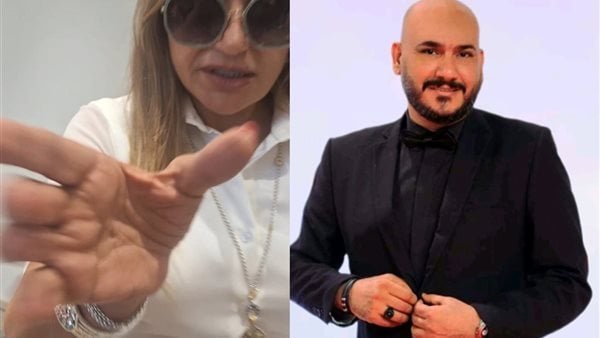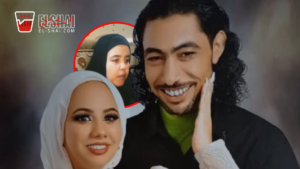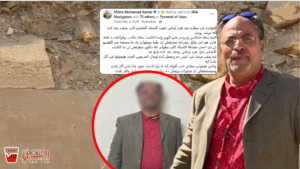Egypt’s Public Prosecution has launched an investigation in case no. 1143 of 2025 (Sidi Gaber) after journalist Raymond El-Masry filed a complaint against actress Laila Eloui.
He accused her of physically assaulting him, mocking his disability, and confiscating his phone by force during his coverage of the Alexandria Mediterranean Film Festival.
El-Masry’s report claims Eloui pushed him “without reason,” causing him to lose balance because of his disability. He says she then took his phone, handed it to someone who deleted its contents, and threw it back at him. When others pointed out his condition, he said she mocked him.
The prosecution ordered an urgent investigation and the seizure of CCTV footage from the hotel where the incident took place.
The case falls under Article 43 of Law 10 of 2018, which criminalizes any form of bullying or assault against persons with disabilities.
Witnesses Tell Another Story
Several people who were there say that’s not what happened.
According to multiple eyewitnesses we spoke to, the journalist touched Laila Eloui inappropriately while she was walking past.
It’s unclear if it was intentional, but she reacted immediately and pushed him away.
He then claimed he was disabled, and she reportedly snapped back with a sarcastic remark — implying his behavior was the issue, not his condition — before grabbing his phone in anger.
Who Is Raymond El-Masry?
Raymond El-Masry is a journalist and TV presenter who is known for advocating for disability rights.
He has worked at Al-Watan, Al-Bawaba, and Dot Masr, as well as on programs such as Al-Hadath Al-Masry and Dream TV.
But this isn’t his first controversy.
Earlier at the same festival, he accused actor Riyad El-Khoury of ignoring a man with disabilities — a claim that’s literally disproven by footage showing that El-Khoury hadn’t noticed the man at all in the video he himself literally posted.
His coverage during the event primarily focused on Eloui, with captions that felt more like fan posts than journalistic pieces. One of them read:
“The moment Laila Eloui arrived at the Alexandria Film Festival… you won’t believe how beautiful she looked.”
As a journalist with years of experience — and someone reportedly running for a syndicate position — how is that acceptable?
How is it okay for entertainment coverage to revolve around who looked “stunning,” who wore what, or who had “drama,” instead of actual reporting?
Now Here’s Everything That’s Wrong With the Situation
We don’t have a horse in this race. We’re not defending Laila Eloui, and we’re not defending Raymond El-Masry. What matters to us is something bigger — the complete lack of respect for boundaries between celebrities and the media, and the constant confusion between paparazzi work and journalism.
There’s a fine line between coverage and intrusion, and too many journalists in Egypt have forgotten where it is. Being in the public eye doesn’t make someone public property. Whether it’s actors, singers, or influencers, everyone deserves personal space and consent — on and off camera.
This industry needs to remember that documenting someone’s presence isn’t the same as having access to their body, privacy, or peace of mind.
Journalism is not chasing celebrities around and forcing interviews on them. Journalism is not being a paparazzi!
Film festivals around the world provide designated press opportunities for a reason — interviews are scheduled, approved, and managed professionally.
If you don’t get that opportunity, you don’t push for it, and you definitely don’t corner someone to get a quote. That’s not journalism. That’s harassment dressed as ambition.
And quite frankly, his disability has nothing to do with what happened.
It doesn’t excuse inappropriate behavior, and it doesn’t give him an advantage over other journalists.
Yes, Eloui’s remark was offensive and unnecessary, but this entire situation should never have happened in the first place.
If someone has spent years advocating for disability rights and publicly saying their condition doesn’t limit them, they can’t suddenly use it as a shield when things get uncomfortable.
You can’t call for equal treatment and then demand special exemption the moment you’re criticized — especially when the issue isn’t your disability, but your behavior.
This is exactly like the video of the “ignored disabled person trying to take a photo with an actor” that the journalist just posted days before the incident. Disability has nothing to do with any of this!
This case matters not because of who’s right or wrong, but because it exposes how red-carpet coverage in Egypt keeps crossing lines in the name of “doing the job.”
Actors’ Syndicate Defended Eloui — But Needs to Do More
A source from the Syndicate of Actors told Sada El-Balad the claims haven’t been confirmed and that the Syndicate “will defend any member against defamation.”
Still, the Syndicate has failed to protect its members’ public image and safety.
And part of that failure stems from the same journalists who continually reduce artists to gossip headlines and clickbait moments.
When reporters consistently frame stories negatively, it’s no surprise that audiences follow their lead.
If those in the industry are not treated with respect, why would the public view it any differently?
The Bigger Problem No One Wants to Talk About
We weren’t there when it happened, but multiple witnesses confirmed the journalist touched Eloui.
Since then, several journalists have defended him, saying the case “hurts the reputation of journalism.”
If that’s what you’re worried about, maybe start with how entertainment journalism actually operates in Egypt.
We’ve covered festivals for years. The sexualization of actresses is constant — even when they’re underage.
We’ve had to mute videos or add background music because the comments around us were too disgusting to publish.
Our own team has been harassed — verbally, physically, and sexually — by other journalists while working.
Last year, we cut short our coverage of the Cairo International Film Festival because our team didn’t feel safe.
So no, this case isn’t about protecting journalism. It’s about holding it accountable.
Because if a journalist touching a woman gets brushed off as “part of the job,” the real crisis isn’t Laila Eloui’s reaction — it’s the environment that made her need to react in the first place.





